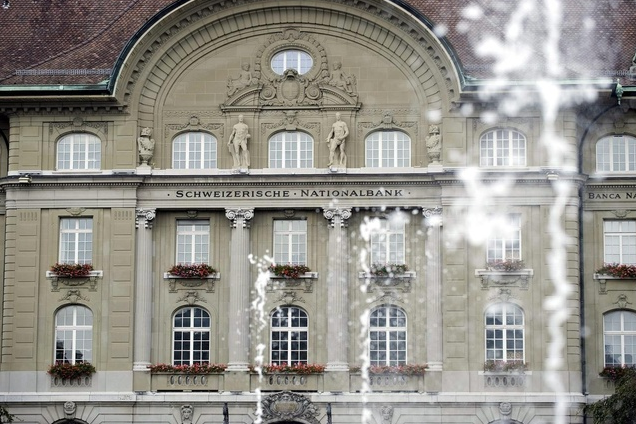The SNB said its interventions were transparent and ‘motivated purely by monetary policy’ (Keystone) The US Treasury has called on the Swiss government to cut taxes and spend more public money, after it added the country to a watchlist of those it accuses of currency manipulation. The Swiss franc nudged up to a near three-year high against the euro on Tuesday as markets anticipated the move would limit the Swiss National Bank’s appetite for aggressive action to try to hold down its currency in future. “The report is a warning shot to the SNB,” said George Saravelos, global co-head of currency research at Deutsche Bank, adding that the franc is likely to push higher from here. It now trades around CHF1.08 against the euro. The US called on Bern on Monday to “more
Topics:
Swissinfo considers the following as important: 3.) Swiss Info, 3) Swiss Markets and News, Business, Featured, newsletter
This could be interesting, too:
Nachrichten Ticker - www.finanzen.ch writes Die Performance der Kryptowährungen in KW 9: Das hat sich bei Bitcoin, Ether & Co. getan
Nachrichten Ticker - www.finanzen.ch writes Wer verbirgt sich hinter der Ethereum-Technologie?
Martin Hartmann writes Eine Analyse nach den Lehren von Milton Friedman
Marc Chandler writes March 2025 Monthly

The SNB said its interventions were transparent and ‘motivated purely by monetary policy’ (Keystone)
The US Treasury has called on the Swiss government to cut taxes and spend more public money, after it added the country to a watchlist of those it accuses of currency manipulation.
The Swiss franc nudged up to a near three-year high against the euro on Tuesday as markets anticipated the move would limit the Swiss National Bank’s appetite for aggressive action to try to hold down its currency in future.
“The report is a warning shot to the SNB,” said George Saravelos, global co-head of currency research at Deutsche Bank, adding that the franc is likely to push higher from here. It now trades around CHF1.08 against the euro.
The US called on Bern on Monday to “more forcefully support domestic economic activity” by spending money and reducing the country’s already low tax burden, in what was an unusual swipe at a sovereign nation’s financial affairs. “Despite borrowing costs for the Swiss government being among the lowest in the world, fiscal policy remains underutilised, even within the constraints of Switzerland’s existing fiscal rules,” the US Treasury said in its assessment.
The SNB said on Tuesday that its interventions were transparent, and “motivated purely by monetary policy . . . aimed at addressing the negative consequence for inflation and the economy through a highly valued franc.”
“They are not aimed at giving Switzerland advantages by undervaluing the Swiss franc,” it added.
Interventions
Unnerved by long-running demand for the franc as a safe haven, Switzerland’s central bank has publicly committed to capping gains in the currency through a combination of euro-buying market interventions and by holding benchmark interest rates at minus 0.75%.
The deeply sub-zero interest rates – already five years old – have begun to cause unease in the traditionally fiscally conservative federation, as banks and pension funds struggle to absorb the hits to their income.
Through its intervention programme, the SNB now holds around CHF770 billion ($794 billion) in foreign currency. The central bank’s foreign equity portfolio alone, worth CHF150 billion, makes it the eighth-largest single investor in companies globally.
This is not the first time the alpine state’s financial policy has raised the ire of Washington. In 2016 Switzerland was added to the watchlist after it abandoned what was effectively a euro peg. The US removed the designation two years later.
The SNB endorsed its own franc-limiting programme in December, saying it “remains willing to intervene in the foreign exchange market as necessary”.
The US’s process of identifying suspected ‘manipulators’ is largely symbolic and carries strong political undertones. The Treasury this week dropped its designation of China as a currency manipulator, in a move that appears aimed at smoothing the passage of a new trade deal between the two countries this week.
Japan, Korea, Singapore, Vietnam and Malaysia are also on the US watchlist, along with Germany, Ireland and Italy. The latter three are eurozone members who do not have independent national rate-setting bodies that could seek to control their currency’s value.
Tags: Business,Featured,newsletter
